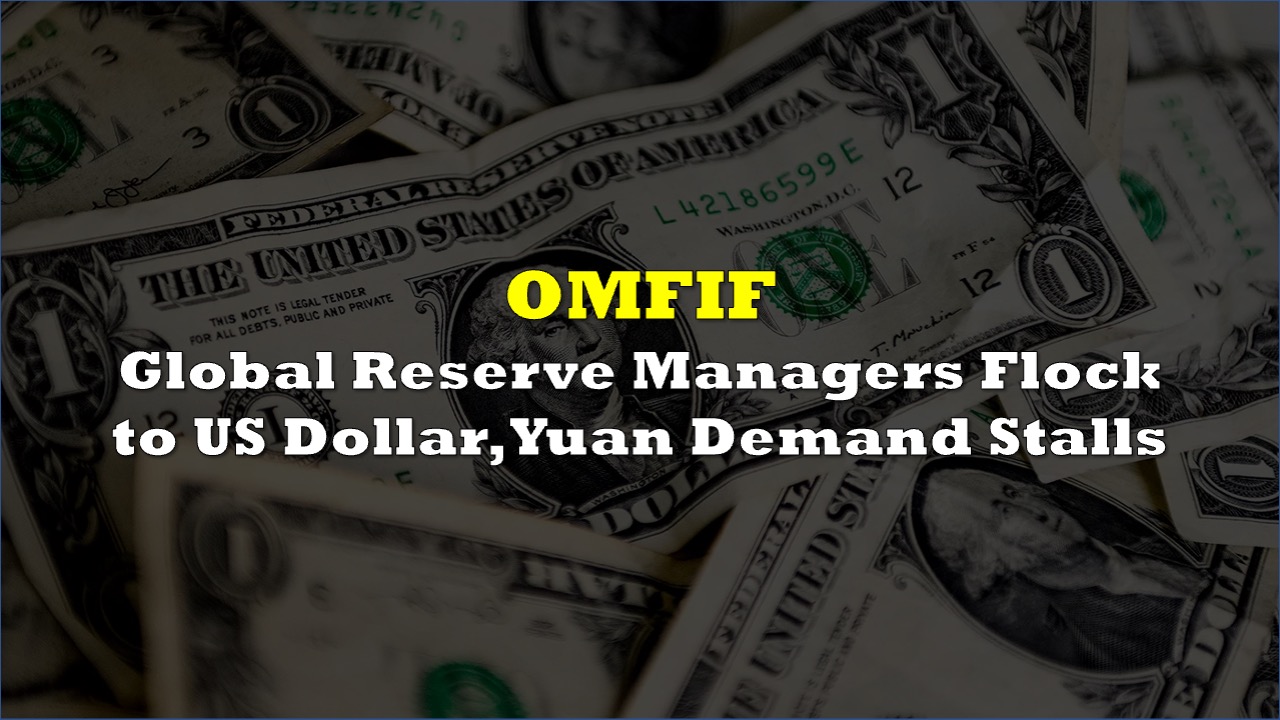The Official Monetary and Financial Institutions Forum (OMFIF) this week released a survey that revealed a sharp shift in the preferences of global reserve managers. The survey, which included responses from 73 central bank reserve managers, found that a net 18% of respondents plan to increase their exposure to the US dollar in the next 12-24 months, citing the currency’s role in global trade and expectations of higher relative returns.
Related: Is De-dollarization Already Here?
Interestingly, the survey also indicated that demand for China’s yuan among reserve managers has stalled. While 13% of respondents plan to increase their yuan holdings, 12% intend to reduce their exposure to the Chinese currency. This marks a notable change from previous years, when over 30% of respondents expressed their intention to increase their yuan holdings, with none planning to reduce their exposure.
Nikhil Sanghani, managing director of OMFIF’s Economic and Monetary Policy Institute, attributed this shift to factors such as market transparency, geopolitical tensions, and the relatively low policy rates in China compared to the higher yields available in US or European government bonds. However, Sanghani noted that in the longer term, reserve managers still anticipate increasing their exposure to the Chinese currency.
The survey also revealed that central banks plan to continue increasing their exposure to gold, which has already helped the precious metal reach record highs this year. OMFIF calculates that if 15% of respondents follow through with their plans to increase gold exposure, an additional $600 billion of reserves will be allocated to gold in the coming years.
Information for this story was found via the Financial Times, Reuters, and the sources and companies mentioned. The author has no securities or affiliations related to the organizations discussed. Not a recommendation to buy or sell. Always do additional research and consult a professional before purchasing a security. The author holds no licenses.









